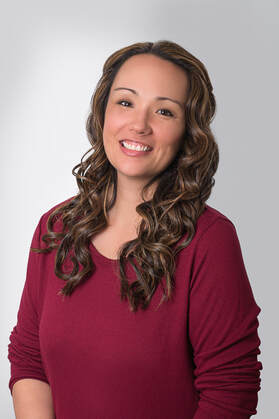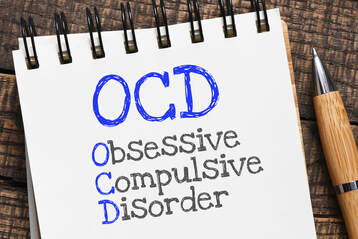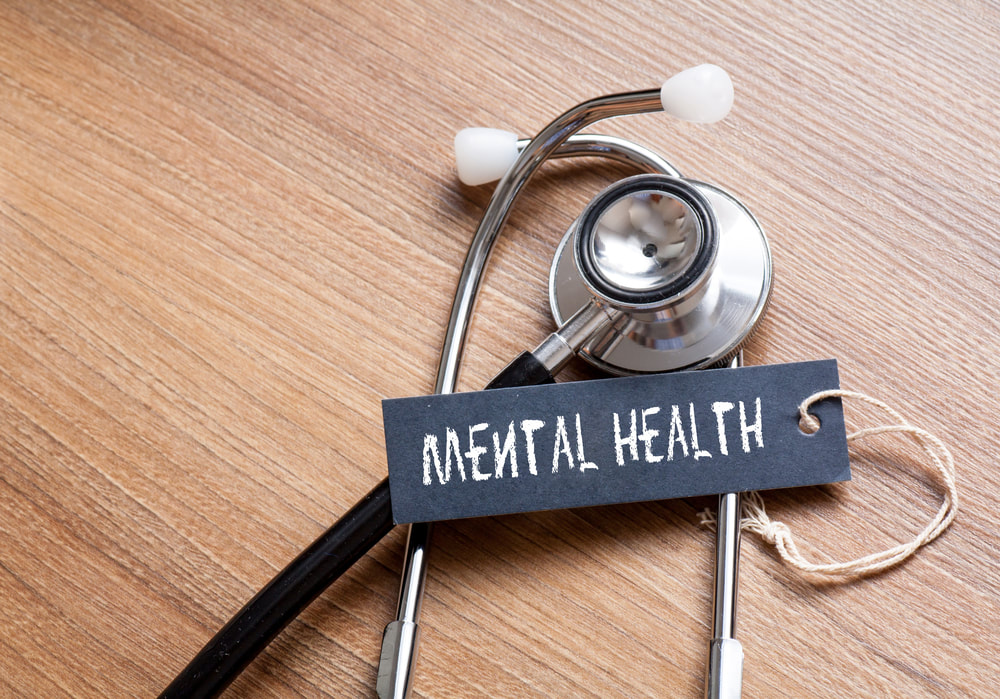Dr. Kat Harris, PhD, LCP
|
Doctor of Philosophy in Clinical Psychology
Licensed Clinical Psychologist Co-Director of Clinical and Business Operations Co-Owner; OakHeart, Center for Counseling, Mediation, and Consultation To make an appointment with Dr. Harris, please call 630-570-0050. You can also email [email protected].
Anxiety Disorders, Social Anxiety Disorder, Generalized Anxiety Disorder (Worry), Panic Disorder with or without Agoraphobia, Health Anxiety Disorder, Specific Phobias, Obsessive-Compulsive Disorder (OCD)
Ages Served: Adults, Older Adults |
Professional Experience
I received my Bachelors Degree from Michigan State University and my Doctoral Degree from Northern Illinois University where I was a member of the Anxiety Disorders research lab and received clinical training in the Anxiety Disorders Services Clinic. During my doctoral training I also conducted research in various areas of anxiety such as Social Anxiety and Panic Disorder. I completed my Pre-Doctoral Clinical Psychology Internship at the Ann Arbor VA in association with the University of Michigan, and my Post-Doctoral Residency at the University of Michigan Clinical Psychology Consortium, both APA accredited programs. While on internship and postdoc, I continued my specialized training in evidence-based treatments for PTSD, OCD, and Anxiety Disorders, completing rotations in PTSD and Anxiety Disorders, General Mental Health, Women's Mental Health, and Neuropsychological Assessment.
Specializations and Treatment Approach
I currently treat:
Obsessive-Compulsive Disorder (OCD)
Social Anxiety Disorder (SAD)
Generalized Anxiety Disorder (Worry)
Panic Disorder with or without Agoraphobia
Health Anxiety/Illness Anxiety Disorder
Specific Phobias
I currently supervise clinician's treating:
All of the above + Posttraumatic Stress Disorder
In my practice, I devote most of my time to seeing adults with anxiety disorders and OCD, and I participate regularly in continuing education to ensure that I am up-to-date on the most effective treatments. I am a member of the International OCD Foundation (IOCDF) and the Association for Depression and Anxiety Disorders of America (ADAA).
I would describe my therapeutic approach to be cognitive behavioral (CBT), with an emphasis on the behavioral (meaning I believe that the strongest learning comes from consistent changes in our behaviors). I am proud to offer evidence-based exposure treatments for anxiety disorders and OCD such as Exposure and Response Prevention and Panic Control Treatment. These treatments typically include having individuals confront the things that cause them anxiety and distress (thoughts, images, impulses, external or internal triggers, symptoms, situations, doubts, worries, etc.) and then having the client "response prevent," or in other words stop engaging in, or significantly modify, the compulsions/safety behaviors/experiential avoidance that the individual normally uses to cope with their anxiety. These various forms of avoidance are thought to maintain danger associations and inhibit opportunities for the individual to learn safety. Safety learning allows for re-wiring of faulty "alarm systems." Exposures are done in a safe, gradual, systematic way to ensure that individuals are as successful as they can be.
When appropriate, I also integrate other third wave mindfulness-based CBT approaches such as Acceptance and Commitment Therapy (ACT) and Dialectical Behavioral Therapy. I believe that success in therapy relies upon a foundation of mutual trust and a sense of safety, and that the therapeutic alliance is one of the most important factors in helping clients improve and reach their goals.
Obsessive-Compulsive Disorder (OCD)
Social Anxiety Disorder (SAD)
Generalized Anxiety Disorder (Worry)
Panic Disorder with or without Agoraphobia
Health Anxiety/Illness Anxiety Disorder
Specific Phobias
I currently supervise clinician's treating:
All of the above + Posttraumatic Stress Disorder
In my practice, I devote most of my time to seeing adults with anxiety disorders and OCD, and I participate regularly in continuing education to ensure that I am up-to-date on the most effective treatments. I am a member of the International OCD Foundation (IOCDF) and the Association for Depression and Anxiety Disorders of America (ADAA).
I would describe my therapeutic approach to be cognitive behavioral (CBT), with an emphasis on the behavioral (meaning I believe that the strongest learning comes from consistent changes in our behaviors). I am proud to offer evidence-based exposure treatments for anxiety disorders and OCD such as Exposure and Response Prevention and Panic Control Treatment. These treatments typically include having individuals confront the things that cause them anxiety and distress (thoughts, images, impulses, external or internal triggers, symptoms, situations, doubts, worries, etc.) and then having the client "response prevent," or in other words stop engaging in, or significantly modify, the compulsions/safety behaviors/experiential avoidance that the individual normally uses to cope with their anxiety. These various forms of avoidance are thought to maintain danger associations and inhibit opportunities for the individual to learn safety. Safety learning allows for re-wiring of faulty "alarm systems." Exposures are done in a safe, gradual, systematic way to ensure that individuals are as successful as they can be.
When appropriate, I also integrate other third wave mindfulness-based CBT approaches such as Acceptance and Commitment Therapy (ACT) and Dialectical Behavioral Therapy. I believe that success in therapy relies upon a foundation of mutual trust and a sense of safety, and that the therapeutic alliance is one of the most important factors in helping clients improve and reach their goals.
About Me
What are your professional and personal values?
I highly value honesty, kindness, curiosity, achievement, and integrity. To me, being honest is to build trust. I seek to be honest with myself and with others. In a world where we can control little, being kind is something I can control. I value curiosity; the attempt at understanding the world around me including the people whom I share the world with. I am genuinely interested in people's stories and what makes them who they are. I function best when I am setting and working towards various goals, learning new things, and building mastery. Integrity to me means doing what's right, even when it's hard; protecting trust; and earning respect through actions.
What are some adjectives you would use to describe yourself and why?
I would describe myself as nurturing, responsible, determined, compassionate, and resilient. Since I was a kid, I've always tended towards being a "helper." I like making things better for anyone or anything. I have also always been a highly conscientious rule-follower. And, while stubborn might be a different way of looking at it, I am a very determined highly focused individual. Once I set my mind to something, I make it happen. If I run into an obstacle, I usually pick myself up, dust myself off, and push on through.
What are some of your favorite self care activities?
I am a huge music person, so I turn to music in almost everything that I do, including self-care. One of my favorite things to do when I need to clear my head is take a walk with my ear buds in and listen to music that feels connecting in that moment. I also like to travel. And I have a hobby of soap making.
What is your favorite quote?
One of my favorite quotes is "The meaning of life is to give life meaning" by Viktor Frankl. I suppose this is no surprise given that I identify as a cognitive behavioral therapist, for multiple reasons ;) First, the meaning we give our experiences impacts our experience of reality; we have the power to control, often not what happens to us, but the meaning we give those experiences. Second, my drive to help others has been a meaningful force in my life for as long as I can remember. And to be able to fulfill that drive through my work everyday as a psychologist and owner of a mental health practice has been an incredible joy in my life.
Another favorite quote is: "As soon as you trust yourself, you will know how to live" by Johan Wolfgang von Goethe.
Why do you love being a mental health professional?
My clients over the years are some of the most kind, amazing, brave people I have ever met. It takes courage and willingness and vulnerability to do therapy and I feel so honored to be a part of my client's journeys. I especially love my area of specialty because often there's this lightbulb moment for my clients, where they understand the conceptualization of their disorder and get enough momentum in treatment where they start feeling more in control of their lives. It's this moment where you can tell they feel free and hopeful, maybe for the first time in a long time, and it's the best feeling to be a part of that. For some of my clients, even being able to vocalize what they are experiencing and realizing that it has a name and other people share their same symptoms can be an incredibly freeing and relieving experience.
I highly value honesty, kindness, curiosity, achievement, and integrity. To me, being honest is to build trust. I seek to be honest with myself and with others. In a world where we can control little, being kind is something I can control. I value curiosity; the attempt at understanding the world around me including the people whom I share the world with. I am genuinely interested in people's stories and what makes them who they are. I function best when I am setting and working towards various goals, learning new things, and building mastery. Integrity to me means doing what's right, even when it's hard; protecting trust; and earning respect through actions.
What are some adjectives you would use to describe yourself and why?
I would describe myself as nurturing, responsible, determined, compassionate, and resilient. Since I was a kid, I've always tended towards being a "helper." I like making things better for anyone or anything. I have also always been a highly conscientious rule-follower. And, while stubborn might be a different way of looking at it, I am a very determined highly focused individual. Once I set my mind to something, I make it happen. If I run into an obstacle, I usually pick myself up, dust myself off, and push on through.
What are some of your favorite self care activities?
I am a huge music person, so I turn to music in almost everything that I do, including self-care. One of my favorite things to do when I need to clear my head is take a walk with my ear buds in and listen to music that feels connecting in that moment. I also like to travel. And I have a hobby of soap making.
What is your favorite quote?
One of my favorite quotes is "The meaning of life is to give life meaning" by Viktor Frankl. I suppose this is no surprise given that I identify as a cognitive behavioral therapist, for multiple reasons ;) First, the meaning we give our experiences impacts our experience of reality; we have the power to control, often not what happens to us, but the meaning we give those experiences. Second, my drive to help others has been a meaningful force in my life for as long as I can remember. And to be able to fulfill that drive through my work everyday as a psychologist and owner of a mental health practice has been an incredible joy in my life.
Another favorite quote is: "As soon as you trust yourself, you will know how to live" by Johan Wolfgang von Goethe.
Why do you love being a mental health professional?
My clients over the years are some of the most kind, amazing, brave people I have ever met. It takes courage and willingness and vulnerability to do therapy and I feel so honored to be a part of my client's journeys. I especially love my area of specialty because often there's this lightbulb moment for my clients, where they understand the conceptualization of their disorder and get enough momentum in treatment where they start feeling more in control of their lives. It's this moment where you can tell they feel free and hopeful, maybe for the first time in a long time, and it's the best feeling to be a part of that. For some of my clients, even being able to vocalize what they are experiencing and realizing that it has a name and other people share their same symptoms can be an incredibly freeing and relieving experience.
Professional and Educational Additional Experience
|
Professional Memberships:
International OCD Foundation (IOCDF) Anxiety and Depression Association of America (ADAA) ADAA - Specialty Interest Group (SIG): OCD ADAA - Special Interest Group (SIG) : Social Anxiety ADAA - Special Interest Group (SIG); Women's Health; Co-Vice Chair Special Certificates and Trainings: Behavioral Therapy Training Institute (BTTI) - Adult OCD Behavioral Therapy Training Institute (BTTI) - Pediatric OCD IOCDF Advanced OCD Consultation Group Training - Pediatric OCD Perinatal Mood and Anxiety Disorders: Components of Care Supportive Parenting for Anxious Childhood Emotions (SPACE) Teaching Assistant Appointments/Adjunct Professor Positions: Graduate Faculty Scholar, Northern Illinois University Advanced Professional Issues in Clinical Psychology: Supervision, Consultation, and Diversity, Northern Illinois University Research Methods, Northern Illinois University Clinical Psychology Lab Course, Northern Illinois University Introduction to Psychology, Northern Illinois University Getting Intro Graduate School Seminar, Founding Member, Northern Illinois University Co-Facilitator/Co-Founder, NIU Annual Psychology Undergraduate Research Conference Doctoral Dissertation Committee Member |
Invited Talks:
Exposure and Response Prevention: Evidence-Based Practice of Anxiety Disorders and OCD Exposure and Response Prevention in the Treatment of OCD Treatment of Social Phobia: A Cognitive Behavioral Approach Positive Events, Evaluations, and Stimuli in Social Phobia Implicit Memory Biases in Social Phobia Posttraumatic Stress Disorder and Sleep The Consequences of Positive Evaluation in Social Anxiety Introduction to Cognitive Behavioral Analyses Systems of Psychotherapy Conducting Prolonged Exposure Therapy for PTSD Diagnosis and Treatment of PTSD in Combat Veterans Helping Families Cope with Posttraumatic Stress Disorder Mentoring Relationships Post-Doctoral Education Internship/Post-Doctoral/Early Professional Career Trajectories Owning a Private Practice Anxiety and ADHD in School Professional Development Post Internship/Postdoc Anxiety and OCD Treatment Using CBT/ERP Interventions Dissertation Committee Chair Member The Impact of Self-Compassion on Engagement during a Writing Exposure Session for Posttraumatic Stress The Effects of Disgust Exposure on Specific Phobia Symptoms The Relationship Between Loneliness and Experiential Avoidance After Implementation of a Self-Compassion Intervention |
Professional Conference Presentations/Journal Articles:
The Fear of Positive Evaluation Scale: Psychometric properties in a clinical sample.
Anxiety sensitivity and posttrauma stress symptoms in female undergraduates following a campus shooting.
The Social Thoughts and Beliefs Scale: Psychometric properties and its relation with interpersonal functioning in a non-clinical sample.
Anxious children: Examining emotion knowledge and gender.
Examining sexual harassment: Asian American coping mechanisms and psychological health outcomes.
Perceptions of possible selves in veterans seeking treatment for PTSD.
Trauma history and PTSD severity across trauma populations.
The relationship between anxiety sensitivity and PTSD symptoms in Vietnam Veterans.
The effects of positive evaluation of speech performance in socially anxious individuals.
Investigating adaptive and maladaptive aspects of social anxiety: A role for the Parenting Behaviors Specific to Social Anxiety Scales (PBSSAS).
The functional relationship between PTSD symptom clusters across time following a campus shooting.
Anxiety sensitivity and PTSD following the NIU shootings on February 14, 2008.
Post-event processing and social anxiety: The role of self-focused attention.
Psychometric properties of the Social Thoughts and Beliefs Scale in a non-clinical sample.
Sexual harassment and coping among Asian American and Latina women.
Sexual harassment and Asian American women: Exploring the relationship among harassment, coping, and the resulting psychological, physical, and job-related outcomes.
Ethical, cultural, and methodological considerations in conducting sexual harassment research within the Asian American community.
Examining sexual harassment: Asian American coping mechanisms and psychological health outcomes.
The Fear of Positive Evaluation Scale: Psychometric properties in a clinical sample.
Anxiety sensitivity and posttrauma stress symptoms in female undergraduates following a campus shooting.
The Social Thoughts and Beliefs Scale: Psychometric properties and its relation with interpersonal functioning in a non-clinical sample.
Anxious children: Examining emotion knowledge and gender.
Examining sexual harassment: Asian American coping mechanisms and psychological health outcomes.
Perceptions of possible selves in veterans seeking treatment for PTSD.
Trauma history and PTSD severity across trauma populations.
The relationship between anxiety sensitivity and PTSD symptoms in Vietnam Veterans.
The effects of positive evaluation of speech performance in socially anxious individuals.
Investigating adaptive and maladaptive aspects of social anxiety: A role for the Parenting Behaviors Specific to Social Anxiety Scales (PBSSAS).
The functional relationship between PTSD symptom clusters across time following a campus shooting.
Anxiety sensitivity and PTSD following the NIU shootings on February 14, 2008.
Post-event processing and social anxiety: The role of self-focused attention.
Psychometric properties of the Social Thoughts and Beliefs Scale in a non-clinical sample.
Sexual harassment and coping among Asian American and Latina women.
Sexual harassment and Asian American women: Exploring the relationship among harassment, coping, and the resulting psychological, physical, and job-related outcomes.
Ethical, cultural, and methodological considerations in conducting sexual harassment research within the Asian American community.
Examining sexual harassment: Asian American coping mechanisms and psychological health outcomes.
Dr. Harris' Blogs:
|
I want you to know how much I respect and admire you for coming to therapy. Finding a therapist, navigating insurance, attending that first appointment can be really hard. Trusting me, being vulnerable, asking for help can be really scary. Being willing and open to making changes is hard...changing any behavior is a challenge. I want you to know that my clients are some of the bravest, most caring, most determined people that I know....(to read more, click on the link above)
|
|
Finding the right therapist is not always as easy as it should be. I’ve talked with many people looking for a therapist who feel overwhelmed at the prospect and don’t know where to start. Or they have already started but their searches have provided an overwhelming array of options. Or alternatively, very few options that fit their needs. Then they find someone who seems like a good fit, call or email the therapist to set up an appointment, only to find out that the therapist either doesn’t accept their insurance, doesn’t have availability that matches, or isn’t accepting new clients at all...(to read more, click on the link above).
|
|
I often tell my clients about Anxiety Planet. Anxiety Planet can be a lonely and scary place. And unfortunately, gravity keeps its inhabitants stuck. There are many reasons why it can be difficult to escape the gravitational pull of Anxiety Planet. The first is avoidance. The name of the game in getting off of Anxiety Planet is to make safety associations instead of danger associations. However, avoidance makes it essentially impossible or very difficult to make safety associations, therefore danger associations dominate...(to read more, click on the link above).
|
|
Thinking errors, also known as cognitive distortions, are basically thinking patterns that can be problematic in that they are often inaccurate, unhelpful, and can be harmful to someone’s mental health. Individuals with Obsessive Compulsive Disorder tend to engage in specific types of thinking errors that we try to target in treatment...(to read more, click on the link above).
|
|
Many people think of two things when they think of therapy: traditional outpatient therapy, where you meet one-on-one with a therapist, or inpatient therapy where you are admitted to a hospital for safety reasons. However, there are actually several in-between options that may be a good match for your needs depending on the “dose” of treatment you need. The more severe the symptoms and the more impairment the symptoms cause, the more likely a higher level of care will be indicated to best help you get better...(to read more, click on the link above).
|
|
Of note, feeling anxious and worried about health can be a normal experience for many people over the course of our lives. And, anxiety itself is not necessarily a bad thing and is meant to protect us in the face of actual danger. It becomes a problem though when it becomes excessive, distressing, impacts quality of life, and when it occurs in response to unlikely or unrealistic threats. Individuals with Health Illness Anxiety Disorder tend to experience excessive anxiety, both in terms of intensity and frequency of that anxiety, and their fears tend to be out of proportion to the actual likelihood and cost of having what they are afraid of occurring. Their fears also tend to persist, despite reassurances that their fears are unlikely to occur (e.g., via doctor’s visits, tests, etc.)...(to read more, click on the link above).
|
|
Specifically, changing behaviors is one of the core goals in CBT, as it is thought that behavioral change allows for healthy corrective experiences that can alter unhealthy beliefs about the self, world (including others), and one’s future. Avoidance and withdrawal, some of the key features of depression and other disorders, inhibits an individual's opportunity and ability to obtain corrective experiences and positive reinforcement from their environment. Therefore, behavioral activation treatment involves encouraging “activation” and participation in “anti-depressant” activities…interaction with one’s environment in a way that offers opportunities for positive reinforcement and increases in self-efficacy (a person’s belief in their ability to exert control over their lives and their world)...(to read more, click on the link above).
|
|
An intense, disproportionate fear of vomiting might not sound all that debilitating for those who don’t suffer from emetophobia or for those without a loved one with emetophobia. However, having an intense fear of vomit can wreak havoc on one’s life and interfere in one’s ability to engage in activities that they might otherwise love to do, such as travel, eat at restaurants, try new foods, attend school, watch certain movies or tv shows, have children or care for sick children, spend time around children, visit a loved one in a hospital, etc...(to read more, click on the link above).
|
|
Exposure and Response Prevention (ERP) is a form of Cognitive Behavioral Therapy. While ERP is usually associated with treatment for OCD specifically, the foundations of the treatment itself can apply to several other disorders, including other anxiety disorders and eating disorders. ERP is considered a gold-standard treatment for OCD. It involves asking clients to either trigger or allow obsessions to exist (this part is called exposure). During the exposure, clients are directed to resist pushing the obsessions away and are discouraged from engaging in compulsions or other forms of avoidance (this part is called response prevention). I am sure this sounds hard and scary, and for someone with OCD, it really can be. For this reason, therapists and clients work collaboratively in a safe environment to develop a gradual, systematic approach. Working together helps to increase the chance that clients are successful and have the best chance at learning safety...(to read more, click on the link above).
|
|
Individuals with Social Anxiety Disorder are thought to experience anxiety in response to social situations because they assume that they will be evaluated negatively and catastrophize about the implications of negative evaluation. More specifically, individuals with Social Anxiety Disorder assume that they will be evaluated negatively because they think that their abilities will fall short of others’ expectations, that there are high expectations for social performance, have unconditional negative beliefs about the self, and assume that acting in certain ways will result in negative consequences...(to read more, click on the link above).
|
|
Mental Health Hygiene is much like physical hygiene, consistently practiced activities that help ensure both short-term and long-term health and contribute to our quality of life. The following are 4 categories I believe are important components of good mental health hygiene and ones I teach to my clients regularly...(to read more, click on the link above).
|
|
Thought-Action Fusion (TAF) is one of the many kinds of cognitive distortions (errors in thinking or interpreting) that individuals with OCD are more likely to make than individuals without OCD. In fact, I believe it is one of the most central cognitive distortions in OCD and must be properly assessed and targeted in treatment. TAF is an example of a specific kind of attribution of significance related to the meaning we give our thoughts. Specifically, TAF reflects the belief that having a certain thought/image/urge either increases the likelihood of the feared outcome occurring (Likelihood TAF) or that having a certain thought/image/urge is morally equivalent to actually doing what the thought entails (Moral TAF)...(to read more, click on the link above).
|















